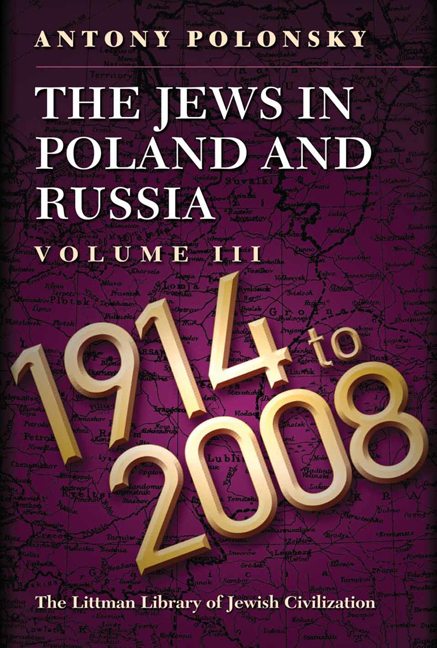Book contents
- Frontmatter
- Dedication
- Acknowledgements
- Contents
- List of Maps
- List of Tables
- Note on Transliteration
- Note on Place Names
- Maps
- General Introduction
- PART I FROM THE FIRST WORLD WAR TO THE SECOND
- PART II WAR AND GENOCIDE, 1939–1944
- PART III FROM THE END OF THE SECOND WORLD WAR TO THE COLLAPSE OF THE COMMUNIST SYSTEM
- EPILOGUE JEWS IN EASTERN EUROPE AND RUSSIA SINCE THE END OF COMMUNISM
- Conclusion
- Glossary
- Bibliography
- Index
15 - From 1944 to the Death of Stalin
- Frontmatter
- Dedication
- Acknowledgements
- Contents
- List of Maps
- List of Tables
- Note on Transliteration
- Note on Place Names
- Maps
- General Introduction
- PART I FROM THE FIRST WORLD WAR TO THE SECOND
- PART II WAR AND GENOCIDE, 1939–1944
- PART III FROM THE END OF THE SECOND WORLD WAR TO THE COLLAPSE OF THE COMMUNIST SYSTEM
- EPILOGUE JEWS IN EASTERN EUROPE AND RUSSIA SINCE THE END OF COMMUNISM
- Conclusion
- Glossary
- Bibliography
- Index
Summary
I weep for you with all the letters of the alphabet
that made your hopeful songs. I saw how reason spent
itself in vain for hope, how you strove against regret—
and all the while your hearts were rent
to bits, like ragged prayer books … And so I tell
your merits, have always looked to your defense, not to justify
for pity of your deaths, but for what you were when all the space
of Russia sustained you still, and you lived your deathly lie:
Marranos—your deepest self denies your face.
CHAIM GRADE, ‘Elegy for the Soviet Yiddish Writers’, 1953… an invisible force was crushing him. He could feel its weight, its hypnotic power; it was forcing him to think as it wanted, to write as it dictated. This force was inside him; it could dissolve his will and cause his heart to stop beating … Only people who have never felt such a force themselves can be surprised that others submit to it. Those who have felt it, on the other hand, feel astonished that a man can rebel against it even for a moment—with one sudden word of anger, one timid gesture of protest.
VASILY GROSSMAN, Life and Fate, 1960THE POST-WAR ORDER
THE Soviet victory over Nazi Germany created a new order in eastern Europe. From the Nazi invasion of the Soviet Union in the summer of 1941 Stalin did not deviate seriously from the goals he had set himself in Europe. He wanted recognition of the territorial accessions which the Soviet Union had made in 1939 and 1940. Further, he sought a ‘sphere of influence’ composed of ‘friendly’ states on his western border and he was determined to have a major say in the administration of a demilitarized, united Germany. He believed that the strength of the Communist Party would make it a decisive factor in the politics of this new Germany, was convinced that German industrial power would produce the reparations that would make possible the recovery of the USSR from the devastation of the war, and also probably assumed that only a three-power occupation would ensure that the Germans would not attempt to overthrow the Carthaginian peace that was being imposed on them.
- Type
- Chapter
- Information
- The Jews in Poland and RussiaVolume III: 1914 to 2008, pp. 593 - 653Publisher: Liverpool University PressPrint publication year: 2012

